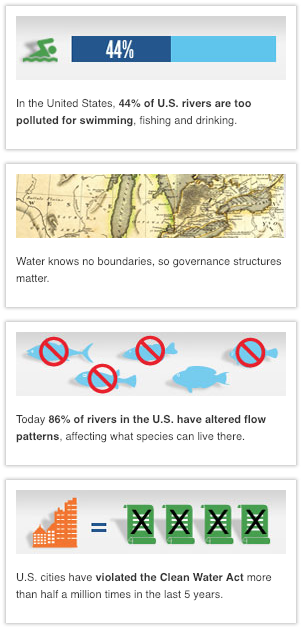 Without smarter water resources management, a growing world with more people and more activities will demand more water and create more pollution, breaking the boundaries of sustainability of water resources utilization. This will be aggravated by the effects of climate change that is already impacting some of the planet’s most vulnerable rivers, lakes and ecosystems.
Without smarter water resources management, a growing world with more people and more activities will demand more water and create more pollution, breaking the boundaries of sustainability of water resources utilization. This will be aggravated by the effects of climate change that is already impacting some of the planet’s most vulnerable rivers, lakes and ecosystems.
At the same time, a world with more people and a larger consumer class will demand an improved quality of life. Cities must be willing to make investments that attract residents and businesses and that preserve both water resources and the environment. This is why it’s critical that every community, every business and every home play a part in protecting and managing water.

Water issues are global and at the same time inherently local. But in many cases, water resources are simply not managed effectively. And when watersheds straddle local, regional or national borders, leaders are often unaccountable for the way water is used and without incentive to make changes. Appropriate governance structures need to be put in place.
Whether we face water quality, scarcity or variability issues, the way we anticipate and respond to water challenges defines our capacity for growth. There are environmental and economic benefits to overcoming these challenges in the right way. Proving again, that safe, clean and accessible water is the building block for growth.

